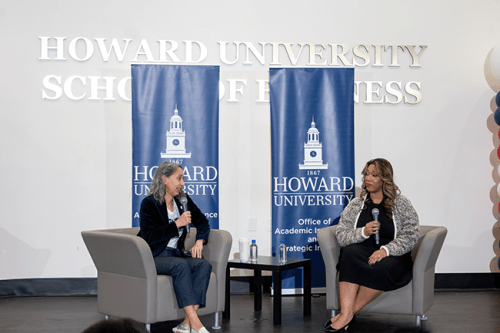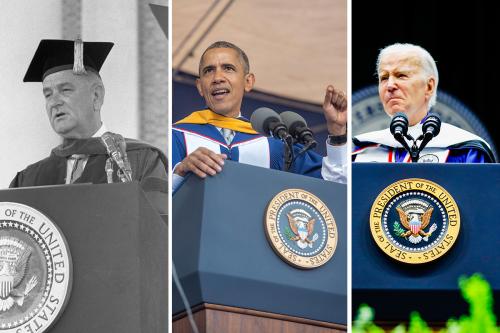WASHINGTON – Howard University Associate Professor Natalie Hopkinson, Ph.D., teaches a weekly seminar, “Gender and Media” as part of the curriculum for the Communication, Culture and Media Studies doctoral program. The graduate students were tasked to analyze two of Alicia Keys’ music videos, "Brand New Me,"(2012) and "So Done," (2020) through the lens of gender theory from the work of the philosopher Judith Butler. The students were told that a person from the videos’ creative teams would join the discussion.
Then, the artist herself appeared on the live webinar, much to the shock and delight of the graduate students.
“I could not have predicted how well Alicia Keys fit into a seminar on Judith Butler. It was truly perfect learning moment,” said Hopkinson. “She talked about chaffing at the constraints of gender and defending boys' interest in ‘girl’ things and vice versa. This was all in the context of her styling her latest video, which mixed the masculine with the feminine in a way that is ‘just me.’ Her words of encouragement to the students at the end were so beautiful, generous and kind. My favorite thing though, is when she got off the zoom, the students wanted to go right back and pick up their conversation about Judith Butler that rocked their world and had them questioning everything!”
While Alicia Keys delighted the class with her insights about the pressures and opportunities as a woman navigating a music industry driven by media images, she also left with new theoretical and other perspectives.
“I sat in on a ‘Gender and Media’ class at Howard University last week and wow! I LOVED it! The conversation with the PhD students and their professor was so deep and insightful!” said Keys. We got into the roles of race, societal expectations in music and media, and all of our lives. We connected on so many levels! Their diverse perspectives gave me so much to think about. I am so grateful for the experience and so excited for our future with these great minds leading us!”
One of the doctoral students in the seminar, Aisha Powell, a second-year PhD student from New York, reflected on the experience.
“Alicia Keys was a great example of how you can use art to be critical of the larger hegemonic structures in society,” Powell said. “She doesn’t necessarily make music to object to gender normative notions, but instead her music and art is a reflection of who she is, which is a person who is not confined but what society tells her to be. She was a refreshing voice to the class, and an actualization of the theoretical topics and ideas that we research in the class!”
###
About the Communication, Culture and Media Studies Doctoral Program
The department provides doctoral-level studies leading to the PhD which focuses on communication problems of importance in an emerging digital and multicultural world. The curriculum in Communication, Culture and Media Studies (CCMS) is designed to train scholars and academic leaders to contribute to interdisciplinary research in communication with a particular emphasis on multicultural and mediated communication. The program offers core competencies in research strategies (qualitative, quantitative, and critical), theory and methodology. The program also responds to the university’s historical mission to advance African Americans and other underserved communities by emphasizing multiculturalism, global issues and social justice concerns in its curriculum. Applicants to the CCMS program must possess a master’s degree by the time they enter the program. To learn more, visit http://communications.howard.edu/department/ccms/
About Howard University
Founded in 1867, Howard University is a private, research university that is comprised of 13 schools and colleges. Students pursue studies in more than 120 areas leading to undergraduate, graduate and professional degrees. The University operates with a commitment to Excellence in Truth and Service and has produced one Schwarzman Scholar, three Marshall Scholars, four Rhodes Scholars, 11 Truman Scholars, 25 Pickering Fellows and more than 165 Fulbright recipients. Howard also produces more on-campus African-American Ph.D. recipients than any other university in the United States. For more information on Howard University, visit www.howard.edu
Media Contact: Imani Pope-Johns, imani.popejohns@howard.edu




